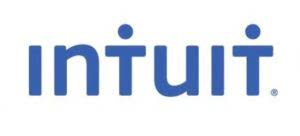
It is the method companies use to allocate the cost of an asset, which may be machinery, building, etc., throughout its useful life. This is done because every asset is subject to a fall in value during usage due to continuous wear and tear. The cost allocation in the form of depreciation will ultimately ensure that the final value of the asset appearing in the financial statement will reflect its true and fair current value. This only https://www.bookstime.com/articles/vertical-analysis speeds up the acknowledgment of inferences and does not make larger tax deductions. Now, this can be an issue for growing trade, where its income would move it into greater tax rates. Many businesses hire accelerated depreciation approaches when they have assets they expect to be more fruitful.

Recommended Articles
- The Life of Solar Power Plant is considered as 25 Years, but in this example, we have considered the time period for 4 years only.
- Anyone planning to use the depreciation tax shield should consider the use of accelerated depreciation.
- These deductions reduce a taxpayer’s taxable income for a given year or defer income taxes into future years.
- Meanwhile, the company maintains its own depreciation calculations for financial statement reporting, which are more likely to use the straight-line method of depreciation.
- On the income statement, depreciation reduces a company’s earning before taxes (EBT) and the total taxes owed for book purposes.
- Those tax savings represent the “depreciation tax shield”, which reduces the tax owed by a company for book purposes.
By comparing the above two options calculated, we concluded that the present value in the case of buying by taking a tax shield is lower than the lease option. The booked Depreciation Tax shield is under the Straight Line method as per the company act. The net benefit of accelerated depreciation when we compare to the straight-line method is illustrated in the table below. The tax shield might not apply in certain government agencies where reduction is not allowed as a tax deduction.
Formula
High depreciation expenditures noted now, it means fewer depreciation registers later. Accelerated depreciation is that technique whereby asset losses book value at a quicker rate than the old style method. This will become the main source of cash inflow which we saved by not providing tax.
Everything You Need To Master Financial Modeling
- Because depreciation expense decreases taxable income by $10,000, it decreases the amountof taxes we have to pay by $3,000.
- The information does not constitute legal, accounting, tax advice, or other professional services.
- A depreciation tax shield is a tax evaded causing by the deduction of depreciation in assets.
- Acquiring an asset often provides long-term financial value, but maintaining it can be costly.
- It is the method companies use to allocate the cost of an asset, which may be machinery, building, etc., throughout its useful life.
This will become a major source of cash inflow, which we saved by not giving tax https://www.facebook.com/BooksTimeInc/ on depreciation. Companies using accelerated depreciation methods (higher depreciation in initial years) are able to save more taxes due to higher value of tax shield. Anyone planning to use the depreciation tax shield should consider the use of accelerated depreciation. This approach allows the taxpayer to recognize a larger amount of depreciation as taxable expense during the first few years of the life of a fixed asset, and less depreciation later in its life.

By using accelerated depreciation, a taxpayer the depreciation tax shield is best defined as the: can defer the recognition of taxable income until later years, thereby deferring the payment of income taxes to the government. Interest expenses are, as opposed to dividends and capital gains, tax-deductible. These are the tax benefits derived from the creative structuring of a financial arrangement. The tax shield on interest is positive when earnings before interest and taxes, i.e., EBIT, exceed the interest payment. The value of the interest tax shield is the present value, i.e., PV of all future interest tax shields. Also, the value of a levered firm or organization exceeds the value of an equal unlevered firm or organization by the value of the interest tax shield.

